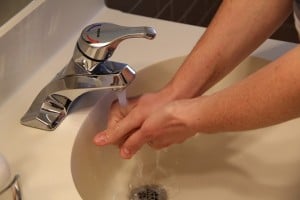 It may sound strange to think that merely washing your hands with soap and clean water can actually save your life, but it is a fact.
It may sound strange to think that merely washing your hands with soap and clean water can actually save your life, but it is a fact.
This is demonstrated over and over in poor areas where access to fresh water and hygienic sanitation is either non-existent or minimal. Individuals in these areas, as well as in emergency situations such as refugees who are fleeing for their lives, often fall foul of bad hygiene due to a lack of clean water and this causes millions of deaths every year, especially in children.
The saddest tale of all is of the millions of refugee children who die either en route to safety or while in refugee camps, not from the war, not from a bullet or a knife, not from a bomb or hand grenade, but from diarrhoea and other common ailments.
It is sad because nearly all of these unnecessary deaths could be avoided by the simple act of handwashing. Personal hygiene is often overlooked in emergency situations such as wars, armed conflicts or natural disasters, and this can easily lead to the spread of illness and water-related diseases such as diarrhoea. A staggering 20% of global childhood deaths are due to diarrhoea.
While the simple act of handwashing with soap and clean water is one of the most effective and inexpensive ways to prevent diseases such as diarrhoea, those who have had poor hygiene habits for a long time due to having limited access to soap and water sometimes find it difficult to remember to wash up. International Medical Corps is working with communities to teach them better hygiene and how to use ash and water to wash their hands when soap is unavailable.
Refugee camps are especially prone to the spread of water-related diseases due to the lack of fresh water and sanitary conditions. IMC staff and volunteers teach the benefits of drinking fresh, unpolluted water, handwashing and hygienic sanitation.
Purchase water cooler or hire water cooler from Living-Water.





